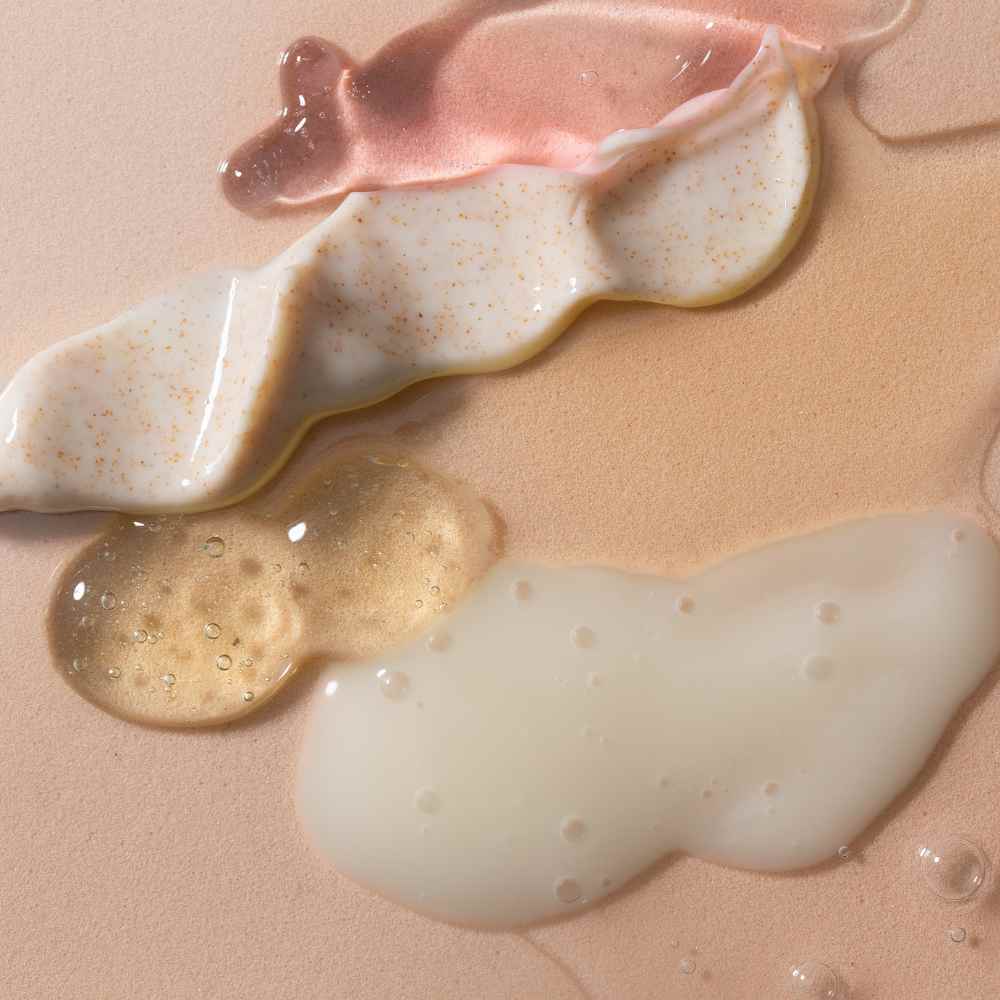
What are Peptides & Why Are They Important to Your Skin?
Are your skin woes leaving you feeling wrinkle-eyed and haggard? If so, peptides may just be the miracle molecule that can give your skin a much-needed boost for more youthful looking results. But what exactly are these tiny molecules? And why should they matter to you?
In this post, we'll explore what makes peptides so powerful when it comes to fighting age-related concerns like wrinkles, dark spots, sagging skin and dullness.
We'll also discuss how integrating peptides into your skin care routine can help you score the healthy skin of your dreams. Get ready to say goodbye to those lines and hello to beautiful, younger looking skin!

What the Heck are Peptides?
Peptides are small molecules composed of two or more amino acids connected by something called peptide bonds. They have a wide range of functions, from hormones and neurotransmitters to enzymes and even signaling molecules.
So what makes them so important? Well, for starters, they’re incredibly versatile and play a huge role in the body’s natural processes.
For example, certain peptides will increase muscle growth or contribute to wound healing. Other types help to regulate blood pressure or activate immune cells in response to pathogens.
Peptides also have many applications outside of the body - from improving nutrient absorption in skincare products to being used as sweeteners in food manufacturing.
In fact, since they’re fairly easy to make synthetically (thereby reducing cost), they're becoming increasingly popular as an ingredient for these purposes!
On top of that, many researchers believe that one day we'll be able use copper peptides as pharmaceutical drugs due their immense potential for treating various diseases such as cancer and diabetes – exciting stuff!
Dr. Monica Kieu, a plastic surgeon in California, explains how peptide products can improve your skin.
@drmonicakieu Peptides 101 #skincare #learnontiktok #tiktokpartner #drkieutips #beautytutorial
♬ RULE THE WORLD - Foxxi
@drmonicakieu
The Skincare Benefits of Peptides
Peptides offer a multitude of benefits that can help address common skin concerns and enhance the overall appearance of your skin. Let's explore some of the remarkable ways peptides can transform your skincare routine:
1. Boost Collagen Production:
Collagen is a protein responsible for maintaining the skin's firmness, elasticity, and youthful appearance. Peptides, especially those known as collagen peptides, can stimulate collagen production in the skin.
By promoting collagen synthesis, food derived bioactive peptides help improve skin texture, reduce the appearance of fine lines and wrinkles, and enhance overall skin firmness.
2. Enhance Skin Barrier Function:
The skin barrier is a vital protective layer that shields the skin from external aggressors, such as pollutants and irritants. Peptides, such as ceramide peptides, support the skin's barrier function by reinforcing its structure. This helps to retain moisture, prevent water loss, and maintain a healthy and hydrated complexion.
3. Improve Skin Elasticity:
Loss of skin elasticity is a common sign of aging. Peptides like elastin peptides work by stimulating the production of elastin fibers in the skin. Elastin is a protein that provides elasticity and resilience to the skin. By enhancing elastin synthesis, peptide serum can help restore skin elasticity, reduce sagging, and promote a more youthful appearance.
4. Reduce the Appearance of Wrinkles:
Peptides are known for their potential to reduce the appearance of wrinkles. Some peptides, such as neuropeptides, work by inhibiting the release of neurotransmitters involved in facial muscle contractions. This helps to relax facial muscles, reducing the formation of expression lines and wrinkles.
5. Brighten and Even Out Skin Tone:
Certain peptides, such as oligopeptides, possess brightening properties that can help even out skin tone and fade hyperpigmentation. These peptides work by inhibiting the production of melanin, the pigment responsible for dark spots and uneven skin tone.

Incorporating Peptides into Your Skincare Routine
Now that you're aware of the incredible benefits antimicrobial peptides offer, you're probably eager to incorporate them into your skincare routine. Here's how you can make the most of peptides:
1. Identify Your Skincare Concerns:
Determine your specific skincare concerns, whether it's aging, dryness, uneven skin tone, or a combination of factors. Understanding your needs will help you select peptides that target and address those concerns effectively.
2. Choose Products with Targeted Peptides:
Look for skincare products that contain peptides known to address your specific concerns. Opt for serums, moisturizers, or creams that prominently feature peptides in their ingredient list. Pay attention to the concentration and quality of peptides in the product.
You can also take collagen peptide supplements orally if you prefer or if you just want to add collagen peptide supplementation to your peptide skincare routine.
3. Follow Product Instructions:
Use peptides as directed by the product instructions. Some peptides may require gradual introduction to allow your skin to adjust. Follow the recommended usage frequency and quantity for optimal results.
4. Be Patient and Consistent:
Like any skincare ingredient, peptides require consistency and patience to deliver noticeable results. Incorporate peptide-containing products into your daily skincare routine and give them time to work their magic. Results may vary depending on the individual and the specific peptide used.
5. Combine with Other Effective Ingredients:
To maximize the benefits of peptides, consider combining them with other powerful skincare ingredients. Vitamin C, hyaluronic acid, retinol, and niacinamide are just a few examples of ingredients that can complement the effects of peptides and amplify their skincare benefits.
How Long Do Peptides Take to Work?
Ah, the million dollar question: How long do peptides take to work on your skin? The short answer is...it depends. But don't worry!
According to several studies conducted by scientists in Japan and Korea, some users have reported noticing visible improvements within 6-8 weeks while others experienced even more remarkable changes after 12-16 weeks!
But here’s the key: It takes consistent application over this extended period of time for those cumulative benefits of continuous use (i.e increased collagen) really start coming into play and manifesting themselves as tangible results over time – so patience is really a virtue here!
At the end of the day – there’s no definitive “one size fits all” answer since every individual’s physiology interacts differently with any given product when it comes their unique skincare needs.
But, investing regular effort into consistently applying quality topical peptide treatments certainly looks like one heckuva promising approach that's worth taking!
The Power of Peptides for Your Skin
Peptides are a game-changer in the world of skincare. From fighting acne and calming inflammation to adjusting the acidity of your pH balance, peptides can truly do it all when it comes to optimal skin health.
In addition to the impacts on the surface of skin, peptides also work beneath the surface; penetrating deep into our cellular layers, they stimulate collagen production and improve overall structure giving us firmer skin and a younger looking appearance.
No matter what your individual needs may be, peptides can help you achieve clear, glowing, blemish-free skin. So why not embrace this revolutionary skincare technology and take charge of your complexion?
Invest in yourself and have fun experimenting with peptides - you won’t regret it!

















